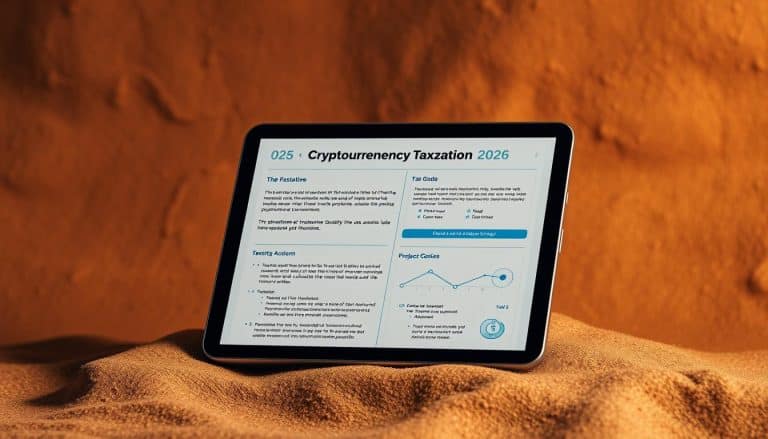Secret Strategies of Successful Altcoin Investors: Unlocking Profitable Insights
Investing in altcoins can seem like a daunting task, especially with the rapid changes in the cryptocurrency market.
Successful altcoin investors, however, have a set of secret strategies that help them navigate this volatile environment with confidence.
One such strategy is focusing on emotional discipline, which plays a crucial role in making informed trading decisions and managing risks effectively.
When you dive into altcoin investing, it’s important to have a robust strategy. This involves understanding when to buy or sell and knowing the right tools and platforms to use.
Research methods are key; you should be on the lookout for promising coins, particularly during their initial coin offering (ICO) phase, as they can offer great opportunities at lower prices.
Becoming a successful altcoin investor also requires tapping into the community and keeping your investments secure.
Networking with other investors can provide valuable insights, while protecting your privacy and assets ensures your investments stay safe.
By continuously educating yourself and staying updated on regulations, you can enhance your investing journey.
Key Takeaways
- Understand key strategies and emotional discipline.
- Use research, timing, and tools to improve investment choices.
- Engage with the community and stay informed on regulations.
Understanding the Altcoin Market
The altcoin market is diverse and dynamic, offering a wide range of investment opportunities beyond major cryptocurrencies like Bitcoin and Ethereum.
Successful navigation requires knowledge of altcoin varieties, fundamental factors, and market trends.
Altcoin Varieties and Fundamentals
Altcoins are cryptocurrencies that are not Bitcoin. They come in many types, each with unique features.
Major categories include stablecoins, utility tokens, and security tokens. Understanding these can help you choose the right investment.
Stablecoins aim to mimic the value of stable assets like fiat currencies, providing a consistent value.
Utility tokens offer specific uses within their platforms, often required for network access or services. Security tokens represent ownership in an asset, similar to stocks.
When considering an investment, examine the purpose and technology of the altcoin, its development team, and its market capitalization.
Market capitalization gives insight into the total value and importance of a coin in the broader market.
Market Trends and Analysis
Tracking market trends is crucial for making informed investment decisions. The altcoin market is known for its volatility and rapid changes. You need to follow current events, regulatory news, and technological advancements affecting cryptocurrencies.
A common method is technical analysis, which involves studying past price movements and patterns.
On the other hand, fundamental analysis looks at the overall health and potential of the coin. Factors like adoption rate, community support, and technological strength are vital.
Platforms like CoinDesk offer up-to-date news and insights.
Keeping an eye on these details helps you stay ahead and make smarter investment choices.
Developing a Robust Investment Strategy
Creating a solid investment strategy is key to successful altcoin investment. This involves assessing and managing risks, diversifying your portfolio, and balancing long-term and short-term investments.
Risk Assessment and Management
Understanding the risks involved in altcoin investment is crucial. Start by analyzing market trends and potential volatility. Keep up with market news to make informed decisions.
Consider using tools like stop-loss and take-profit orders, which can help minimize losses and secure gains.
Allocate a specific portion of your capital to risky ventures if you have a high-risk tolerance. For a more balanced approach, consider maintaining a mix of low-risk and high-risk assets.
Always have a contingency plan to address unexpected market shifts.
Portfolio Diversification Techniques
To minimize risk, diversify your investment across different altcoins. Instead of concentrating on one or two currencies, spread your capital across several promising options.
This can include well-established tokens like Ethereum and new projects with potential.
Create a list of diverse asset types, such as utility tokens, security tokens, and stablecoins. This variety can help manage risk and leverage different market opportunities.
Regularly review and adjust your portfolio based on market changes and your financial goals.
Long-Term vs. Short-Term Investing
Decide whether your strategy will be long-term, short-term, or a mix of both.
Long-term investing often focuses on holding altcoins you believe will grow steadily over time. These investments might be less volatile and require less active management.
For short-term investing, expect more daily involvement, as it involves buying and selling based on market trends. This can be rewarding but comes with higher risks.
Consider using technical analysis tools to identify buy and sell signals.
Mixing both approaches allows you to balance your portfolio and potentially maximize returns.
Evaluate which strategy aligns best with your financial goals and risk tolerance. Adjust your approach as needed to reflect changes in the market and your own circumstances.
Research Methods for Altcoin Investing
Successful altcoin investing relies on solid research methods. Two key areas include understanding both technical and fundamental analysis tools. These methods help you make informed decisions when investing in altcoins.
Technical Analysis Tools
Technical analysis is about reading charts and recognizing patterns in altcoin prices.
You can use candlestick charts to pinpoint movements. Look for patterns like double tops and bottoms, as they indicate possible price changes.
Support and resistance levels are crucial. They show where the price may stop or reverse, helping you decide when to buy or sell.
Moving averages smooth out price data, showing trends over time that can guide your decisions.
Stay updated on altcoin trends using tools like Crypto View. It allows you to track price movements and market changes efficiently.
Fundamental Analysis Essentials
Fundamental analysis looks at the underlying factors of altcoins.
Investigate the project’s white paper to understand its goals and technology. Team members are important too—check their experience and success in other projects.
Community support often influences an altcoin’s success. Platforms like CoinDesk can offer insights into the strength and size of an altcoin’s community.
Regulatory news might affect your investments as well, so keep an eye on legal developments in different regions.
Evaluate the market cap and trading volume to assess the size and liquidity of the altcoin, which helps you understand its growth potential.
Timing the Market
Understanding the timing of crypto investments can greatly impact your success in the altcoin market. It involves recognizing the right moments to buy or sell and being aware of patterns and trends that affect market movements.
Entry and Exit Points
Finding the right entry and exit points is crucial for making a profit in altcoin investments.
You should observe market trends and study price charts to identify when a coin is undervalued or overvalued.
Using technical analysis tools like moving averages and relative strength indexes can help pinpoint these moments.
Don’t rush into investments due to market hype. Instead, wait for confirmation signals like trends continuing after a breakout.
Also, keep an eye on news and events that could affect prices, such as regulatory changes or major partnerships. Strategic insights can lead to better decisions.
Seasonal and Cyclical Considerations
Crypto markets often follow seasonal and cyclical patterns.
Altcoins might perform better after Bitcoin’s halving events, typically happening in years like 2017 and 2021.
During these times, Bitcoin’s dominance falls, making room for altcoins to shine.
Keep an eye on indicators like Bitcoin Dominance and TOTAL3 charts to anticipate market shifts.
Market sentiment also plays a role; when optimism increases, it might signal the start of an “alt season.”
Be prepared to adjust your strategy based on these cyclical trends to maximize gains.
Investment Tools and Platforms
To succeed in altcoin investing, having the right tools and platforms can make a significant difference. You need reliable trading platforms and the help of automated systems to stay ahead in the volatile market.
Choosing the Right Trading Platforms
Selecting a trading platform is crucial for your success in altcoin investing.
Look for platforms that offer a wide range of altcoins and provide low transaction fees. Security features like two-factor authentication and cold storage options are essential.
Some popular platforms for altcoin trading are Binance and Coinbase, offering easy-to-use interfaces and comprehensive support for various currencies.
Also, consider platforms like Moralis Money which provide market intelligence and help spot potential gainers.
Always check reviews and user experiences before committing to a platform.
Utilizing Bots and Automated Systems
Automated trading systems can help you make quick decisions in the fast-paced crypto market.
Trading bots can analyze market data, execute trades, and manage your portfolio with minimal human intervention.
Bots like 3Commas and CryptoHopper offer customizable strategies that you can tailor to fit your risk tolerance and investment goals.
They can operate 24/7, ensuring your portfolio responds to rapid market changes.
Using bots requires setting clear parameters to avoid unwanted losses. Additionally, monitoring their performance regularly can help you adjust strategies as needed.
Securing Investments and Privacy
To protect your altcoin investments, it is essential to focus on securing your wallet and ensuring your privacy during transactions. This involves using cold storage solutions and adopting safe trading practices to maintain anonymity.
Cold Storage and Wallet Security
When it comes to storing altcoins, using a cold wallet can greatly increase your security.
Cold wallets are not connected to the internet, which makes them less vulnerable to hacks. You might consider using hardware wallets, like Ledger or Trezor, which keep your private keys offline.
It’s important to regularly update your wallet software. This ensures that you have the latest security patches in place.
Keeping multiple backups of your private keys and wallet files on secure devices also adds an additional layer of protection.
Anonymity and Safe Trading Practices
Maintaining your privacy while trading altcoins involves careful strategies.
Using exchanges that respect your anonymity can help keep your personal information secure. Opt for platforms that require minimal personal data for registration.
Moreover, consider using a VPN to obscure your location and encrypt your internet connection. This makes it harder for anyone to trace your trading activities.
When executing trades, always double-check the details to avoid phishing scams and ensure that your altcoins are sent to the intended address.
Community and Networking
Being part of the right communities and engaging in networking can significantly boost your altcoin investing journey.
Understanding how to leverage investor communities and participating in discussions can provide insights and potential opportunities for growth.
Leveraging Investor Communities
Joining investor communities can be a game changer for your altcoin investments.
These groups often share valuable information about trends and market movements. They’re also a great place to discover up-and-coming altcoins that haven’t hit mainstream attention yet.
Actively participating in these communities helps you learn from others’ experiences. You can get advice from seasoned investors who have navigated the ups and downs of the market.
This collective wisdom can guide your decision-making and potentially improve your investing strategies.
Consider using platforms like Telegram and Discord, which host numerous crypto-focused groups.
It’s crucial to evaluate the credibility of these communities. Look for groups where discussions are insightful and fact-driven, as these will be more beneficial for your investment growth.
Engagement in Crypto Forums and Chats
Forums and chat rooms dedicated to cryptocurrency can be rich sources of information. Engaging in these discussions provides you with multiple perspectives and fresh insights.
On these platforms, you can ask questions, share your opinions, and follow market news.
Reddit and Bitcointalk are popular forums where altcoin enthusiasts share their experiences. In these spaces, you can find reviews, technical analyses, and news updates.
Participating in such forums helps you stay informed about market trends and upcoming altcoin projects.
When engaging in these discussions, always approach information critically. Validate claims and cross-check facts.
This ensures that your investment decisions are based on reliable information. Engaging with the crypto community in these ways can greatly enhance your understanding and strategic approach to investing in altcoins.
Regulatory and Legal Considerations
Understanding regulatory and legal considerations is essential for success in the altcoin market. It is crucial to comply with both local and international laws to avoid potential legal issues and financial risks.
Compliance with Local Regulations
In the altcoin market, it is vital to stay updated on local laws where you invest. Different countries require various levels of regulatory compliance.
You need to be aware of local tax regulations, licensing requirements, and anti-money laundering (AML) laws. Failing to comply can result in fines or legal actions.
Ensure that your investments meet national guidelines. This includes knowing whether you must report your altcoin holdings and gains.
Keeping records of all digital transactions can help in meeting compliance requirements. Researching your region’s cryptocurrency landscape will provide a clearer picture of what is necessary.
Understanding International Crypto Law
Cryptocurrency regulations differ across the globe, which affects altcoin investments. Countries like the United States have frameworks outlined by the SEC, while others might have more lenient or strict rules.
Monitoring international developments helps in making informed decisions.
You should familiarize yourself with how countries regulate Initial Coin Offerings (ICOs) and cryptocurrency exchanges. This includes whether you can trade altcoins legally in other jurisdictions.
Awareness of international crypto law can minimize potential risks. Consider consulting legal experts if you plan to invest in foreign markets to ensure compliance and protect your assets.
Tax Implications and Management
Understanding crypto taxes is essential for altcoin investors to manage their obligations and maximize profits. This involves accurately recording transactions and implementing strategies to minimize tax liabilities.
Recording and Reporting Crypto Transactions
To manage crypto taxes, you must keep detailed records of all transactions. This includes the date, value, and purpose of each trade or transaction.
Using a spreadsheet or a dedicated cryptocurrency tax software can help in tracking these details efficiently. You need this information for accurate reporting on your tax return.
Whenever you sell, spend, or exchange cryptocurrency, that transaction may trigger a taxable event. The IRS treats cryptocurrencies as property, so each transaction might result in capital gains or losses.
For income from activities like mining or staking, you must report these as ordinary income. Keeping your records up-to-date is crucial for complying with tax regulations.
Strategies for Tax Optimization
There are several strategies to reduce your tax burden from cryptocurrency investments. Tax-loss harvesting is one technique where you sell underperforming assets to offset gains elsewhere. This can lower your taxable income.
Holding your crypto for over a year before selling can also help. Long-term capital gains are taxed at lower rates compared to short-term gains, which can be crucial in minimizing tax costs.
It’s important to stay informed about changes in tax rates and regulations, which can affect your strategy.
Consider consulting a tax professional who understands cryptocurrency for personalized advice. They can help tailor strategies to your situation and keep you compliant with all federal and state tax laws.
Continuous Education and Resources
To succeed in altcoin investing, staying informed and educated is crucial. Regularly updating your knowledge with market news and utilizing diverse educational resources can give you an edge in this competitive field.
Staying Updated with Market News
In the fast-paced world of altcoins, keeping up with the latest developments is vital. You should track reliable sources for market updates and changes.
Websites like CoinDesk offer timely updates on fluctuations and trends. Following trusted experts on social media can also provide insights into breaking news.
Consider subscribing to newsletters or podcasts from reputable platforms to receive curated information directly into your inbox or feed. This approach ensures you never miss significant changes that could impact your investment decisions.
Educational Resources for Ongoing Learning
Continuous learning means having access to the right educational materials. Utilize online courses that cover technical analysis, market psychology, and blockchain technology intricacies.
Websites like U.S. News often provide guides and strategies that can enhance your understanding.
Reading books on cryptocurrency and financially focused blogs can also broaden your perspective. Discussion forums and webinars are excellent for learning from seasoned investors and engaging in knowledge-sharing.
These resources equip you with the necessary skills to navigate the altcoin market effectively.
Psychology of Investing
In the world of investing, understanding your own mindset can be as crucial as mastering market trends. Successful investors often practice emotional discipline and resist common market fears such as FOMO (Fear of Missing Out) and FUD (Fear, Uncertainty, and Doubt).
Emotional Discipline and Decision Making
Emotional discipline is vital for investors to navigate volatile markets effectively. Keeping a cool head helps you make decisions based on logic rather than emotion.
It’s important to set clear investment goals and stick to them, even when market conditions are tempting you to act otherwise.
Creating a detailed plan can help in maintaining emotional discipline. Outline your investment targets and the strategies you will use. This plan serves as a guide during uncertain times, reminding you of the big picture.
Some investors also find it useful to set stop-loss orders to manage risks automatically, reducing the need for emotional decision-making.
Overcoming the FOMO and FUD Factors
FOMO and FUD are common emotional pitfalls in investing. FOMO can lead you to make hasty decisions just because others are investing, while FUD can cause hesitation and missed opportunities.
To avoid these traps, focus on your research and investment strategy.
A practical tip for overcoming FOMO is to remember that no market opportunity is the last one. Patience is a key part of investment. For managing FUD, educate yourself about market fundamentals and trends.
Trust in your analysis instead of getting swayed by sensational news.
By mastering emotional discipline and overcoming these emotional pitfalls, you position yourself to invest more wisely in the tumultuous world of altcoins.
Frequently Asked Questions
This section delves into various aspects of altcoin investing, including factors to consider before investing, developing strategies, and understanding risks. Additionally, it covers how to determine investment amounts and handle potential platform closures.
What are the critical factors to consider before investing in altcoins?
Before investing in altcoins, pay attention to market trends, project credibility, and team experience. Assess the technology behind the coin and its use case.
Consider the altcoin’s market cap, liquidity, and historical price movement. Ensuring an alignment with your risk tolerance is essential.
How can beginners develop an effective cryptocurrency investment strategy?
Start by researching different cryptocurrencies and understanding the market dynamics. Set clear financial goals and determine your risk tolerance.
Use reliable tools and stay updated with news. Diversifying your portfolio and not investing more than you can afford to lose is crucial for a balanced strategy.
What amount should be invested in cryptocurrencies monthly for a balanced portfolio?
The amount you invest monthly should align with your long-term financial goals and risk tolerance. Consider allocating a small percentage of your investment portfolio, such as 5-10%, depending on your comfort level with risk.
Remaining consistent with monthly contributions can help in averaging out market fluctuations.
What are the risks associated with investing in crypto assets, and how can they be mitigated?
Crypto assets come with risks such as volatility, scams, and regulatory changes. To mitigate these, diversify your investments, conduct thorough research, and use secure wallets.
Avoid investing based on hype and keep abreast of regulatory news. Investing only what you can afford to lose helps manage potential losses.
How can investors strategically determine the best times to buy and sell cryptocurrencies?
Timing the crypto market requires understanding market trends and cycles. Use tools like technical analysis and historical data to make informed decisions.
Set entry and exit points and stick to them. Being patient and avoiding decisions driven by emotion can help in identifying optimal buying and selling times.
In the event of a crypto platform’s closure, how are investors’ assets typically affected?
If a crypto platform closes, the impact on your assets depends on factors like the platform’s policies and whether you hold the private keys.
Storing your assets in personal wallets rather than on exchange platforms can minimize risks. Always review a platform’s terms and keep backups of any wallet information.








 Bitcoin
Bitcoin  Ethereum
Ethereum  Tether
Tether  XRP
XRP  USDC
USDC  Solana
Solana  TRON
TRON  Lido Staked Ether
Lido Staked Ether  Dogecoin
Dogecoin  Figure Heloc
Figure Heloc  Bitcoin Cash
Bitcoin Cash  WhiteBIT Coin
WhiteBIT Coin  Cardano
Cardano  USDS
USDS  Wrapped stETH
Wrapped stETH  LEO Token
LEO Token  Hyperliquid
Hyperliquid  Wrapped Bitcoin
Wrapped Bitcoin  Chainlink
Chainlink  Binance Bridged USDT (BNB Smart Chain)
Binance Bridged USDT (BNB Smart Chain)  Ethena USDe
Ethena USDe  Canton
Canton  Monero
Monero  Stellar
Stellar  Wrapped eETH
Wrapped eETH  USD1
USD1  Rain
Rain  sUSDS
sUSDS  Zcash
Zcash  Hedera
Hedera  Litecoin
Litecoin  Coinbase Wrapped BTC
Coinbase Wrapped BTC  Dai
Dai  PayPal USD
PayPal USD  Avalanche
Avalanche  WETH
WETH  Shiba Inu
Shiba Inu  Sui
Sui  Toncoin
Toncoin  USDT0
USDT0  World Liberty Financial
World Liberty Financial  Cronos
Cronos  Tether Gold
Tether Gold  MemeCore
MemeCore  PAX Gold
PAX Gold  Uniswap
Uniswap  Polkadot
Polkadot  Ethena Staked USDe
Ethena Staked USDe